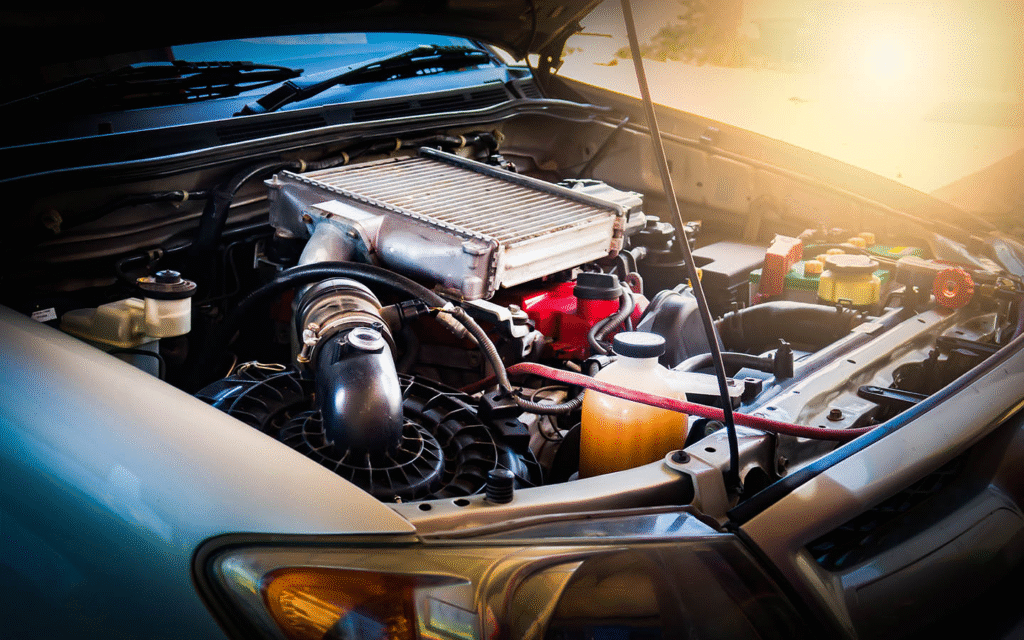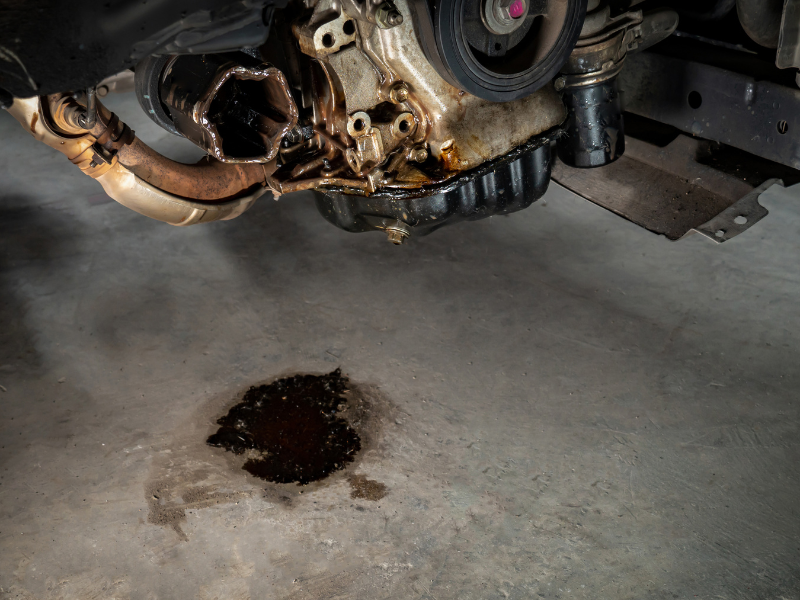The radiator in your car keeps the engine cool and stops it from overheating. Only when every part of the cooling system functions properly can the radiator operate efficiently. Radiator fluid, sometimes referred to as coolant or antifreeze, is an essential liquid for controlling a car engine’s temperature. It moves heat away from the motor by circulating via the engine and radiator.
Causes of radiator leakage
Knowing the cause can help car owners to better understand the condition of the engine and prevent further damage. Here are some common causes of leaking car radiators:
Corrosion
Radiator corrosion is mostly caused by three things: air bubbles in the cooling system, electrolyte in the water used to mix the coolant, and an excessive amount of acid or base in the coolant. The deterioration of the radiator’s copper and zinc covering, which finally thins and perforates and results in leaks, is caused by several reasons. At first, tiny holes that cause slight seepage can enlarge and result in serious leaks.

Physical Damage
A car’s radiator may sustain physical damage from a number of things, such as strong hits from collisions or debris from the road. The radiator surface typically has dents, tiny holes, scratches, or tears as a result of the damage. Even under extreme situations, the frame may bend or the connections between the pipes may break, allowing coolant to quickly escape. If the damage is serious, the radiator may leak right away.
Seal Damage
Fluid leaks in radiators or pipes are stopped by flexible parts called seals. Nevertheless, as time passes, they become harder and less flexible, making them incapable of withstanding coolant pressure. Seepage from this can eventually result in a leak. Exposure to petroleum, oil, or grease can also damage seals, resulting in a gradual leak that gets worse over time.
Radiator Age
The radiator and other engine parts have a lifespan and are susceptible to wear and leaks over time. Owners of cars should periodically inspect and monitor the radiator’s age. Consult the vehicle manufacturer’s handbook, which usually contains guidelines for tire pressure and oil changes, to verify the radiator’s upkeep.
Reasons Not to Ignore the Signs

Leaks Will Cause Overheating
Leakage is frequently an indication of radiator issues. A coolant leak is unmistakably present when you notice a crimson or green puddle beneath your vehicle. Cracks, deteriorated, or loose hoses that let fluid escape are the main causes of radiator leaks. The radiator and the hot engine are separated by coolant. Pressure is produced as a result, eventually affecting the radiator hoses. A leak will eventually cause the system to overheat. Your technician will need to repair the radiator hoses to fix the issue.
Contaminated Coolant Will Clog Up the Radiator
A dark, greasy sludge that replaces the coolant’s original, healthy red or green hue indicates that the fluid has been tainted. Because of this muck, the radiator will get clogged and unable to cool the engine. Consequently, this will result in engine issues and overheating. To remove all of the accumulation and clean the system, a coolant flush is required.
Rust Will Lead to Corrosion
If left unchecked, rust—a mixture of fluids, air, and metal—can harm the engine and cooling system. When a radiator becomes rusty, it combines with coolant, generating a thick sludge that can lead to corrosion. The radiator’s outside rust and the coolant’s brownish hue are symptoms. The coolant in the radiator has to be changed and flushed.
Overheating Will Occur When Idling or Driving
The temperature gauge may be indicating a malfunctioning radiator fan if you observe spikes when your car is idling. In order to cool the radiator when idling or traveling at moderate speeds, the fan pulls air in. The temperature of your car will increase while you’re stuck in traffic or waiting at an intersection if the fan stops operating.
Overheating will Cause White Smoke
The white smoke is the result of an internal coolant leak, which will cause your car to overheat. It may be emanating from the exhaust or under the hood. At any rate, when it’s safe to do so, stop right away and let your car cool down. It is advised to get in touch with your technician right away and ask for help because this is a significant issue.
If left unattended, a malfunctioning radiator could result in significant damage that would be costly to fix.




